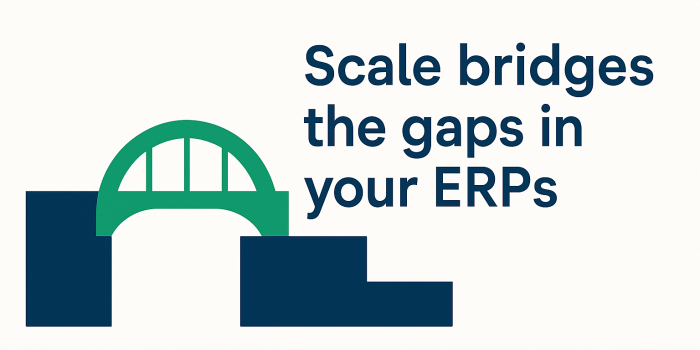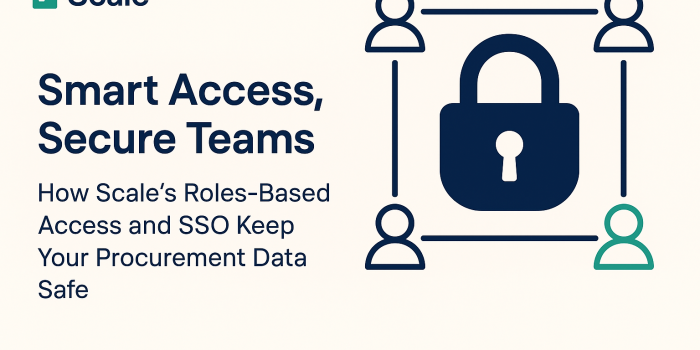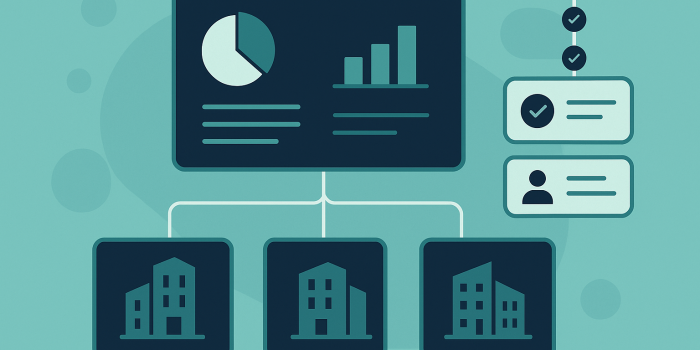Why Procurement Fails Without Feedback – and What to Do About It
One of the biggest and most persistent reasons of procurement fails is the lack of feedback; especially for suppliers.
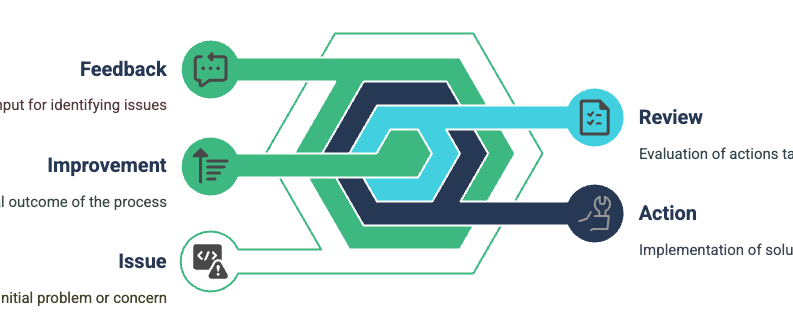
One of the biggest and most persistent barriers in procurement is the lack of feedback; especially for suppliers.
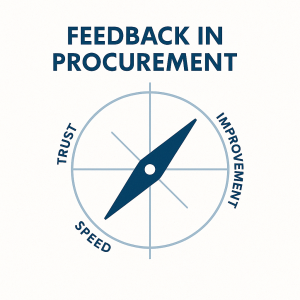
When a supplier submits a tender or delivers goods but receives no feedback, they’re left guessing. Why didn’t they win? Where did they go wrong? What should they do differently next time?
But here’s the overlooked truth: the absence of feedback doesn’t just hurt the supplier. It hurts the buyer, too.
If suppliers don’t improve, buyers continue facing:
- Poor submissions from repeat bidders
- Late or low-quality deliveries
- Weak supplier relationships
- Lost opportunities to optimise costs and timelines
In essence, feedback is not a one-sided courtesy, it’s a shared success lever.
Procurement outcomes improve dramatically when feedback is:
- Timely
- Structured
- Collaborative
- Data-driven
Let’s break down four powerful models every procurement leader should know and how Scale makes it easy to implement them.
Structured Feedback Models in Procurement
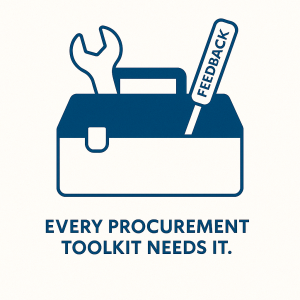
1. SBI Model — Giving Direct Supplier Performance Feedback
Use when: A supplier fails to meet key expectations (quality, delivery, documentation)
Audience: 🧩 External — Supplier
Structure:
- Situation: “While reviewing Q2 supplier scorecards…”
- Behavior: “We noted that 4 out of 10 deliveries arrived incomplete or undocumented.”
- Impact: “This led to delays in inbound processing and downstream production schedules.”
How Scale Helps:
- Highlights delivery anomalies on a live dashboard
- Syncs delivery data with incident reports
- Allows transparent, non-emotional feedback sharing with suppliers
2. COIN Model — Strengthening Strategic Supplier Partnerships
Use when: You want to nurture a long-term relationship and recognize improvements
Audience: 🧩 External — Strategic Supplier
Structure:
- Connect: “We truly value the collaboration this past quarter.”
- Observe: “Your shift to eco-friendly packaging was implemented ahead of schedule.”
- Impact: “This significantly improved our compliance posture with key clients.”
- Next: “Would you be open to sharing your transition model with our other partners?”
How Scale Helps:
- Tracks supplier innovation and sustainability metrics
- Enables tagging and documenting supplier contributions
- Facilitates shared learning across supplier networks
3. GROW Model — Coaching Procurement Team Members
Use when: A team member needs support in improving execution or decision-making
Audience: 🧩 Internal — Procurement Teams
Structure:
- Goal: “We need to improve turnaround time on bid evaluations.”
- Reality: “Evaluations are taking 2+ weeks, delaying contract awards.”
- Options: “Can we trial a simplified scoring sheet or redistribute evaluations?”
- Way Forward: “Let’s assign smaller panels this cycle and review outcomes.”
How Scale Helps:
- Tracks internal evaluation timelines
- Highlights evaluation stage bottlenecks
- Allows easy reallocation of evaluation responsibilities
4. CEDAR Model — Elevating Supplier Accountability
Use when: A supplier’s recurring issues need correction and formal follow-through
Audience: 🧩 External — Supplier
Structure:
- Context: “You’ve been a preferred supplier since 2021.”
- Example: “However, your last two invoices didn’t include itemised tax documentation.”
- Diagnosis: “This led to payment rejections and compliance risk on our side.”
- Action: “Please revise your invoice template and send updated copies.”
- Review: “We’ll re-evaluate compliance adherence in the next billing cycle.”
How Scale Helps:
- Allows tagging of non-compliant documents
- Provides supplier templates for corrective action
- Schedules follow-up compliance checks
Feedback Shouldn’t Be a One-Time Event
Feedback isn’t just something you give at the end of a contract. It should happen at every key milestone in the procurement lifecycle:
- Prequalification: Let suppliers know why they didn’t pass
- RFP Evaluation: Share where scores fell short
- Post-Delivery: Flag delivery issues or praise exceptional service
- Quarterly Reviews: Guide long-term improvement
- Internal Cycles: Help teams improve response times or stakeholder engagement
And feedback isn’t just something you give, it’s something you should also invite.
Suppliers often have valuable insights into:
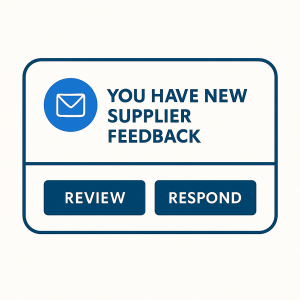
- Inefficiencies in your tender process
- Documentation clarity
- Communication delays
- Payment workflows
Scale provides a safe, trackable channel for this reverse feedback, helping you improve as a buyer, too.
Why Feedback is Your Competitive Advantage
When feedback becomes a culture, not just a task, procurement transforms.
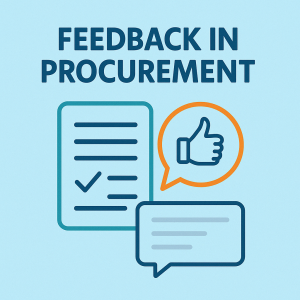
Buyers benefit from:
- Stronger supplier performance
- Better bid responses
- Faster procurement cycles
- Greater internal team confidence
Suppliers benefit from:
- Clarity on expectations
- Faster improvement
- A sense of partnership and inclusion
How Scale Makes This Easy
Scale helps institutionalise feedback across the board by:
✅ Providing performance scorecards, SLA dashboards, and delivery tracking
✅ Enabling contextual feedback with structured templates
✅ Logging follow-ups, action plans, and responses in real-time
✅ Allowing suppliers and internal teams to respond and engage
✅ Supporting a full audit trail of all feedback actions
Feedback is the bridge between average procurement and excellent procurement.
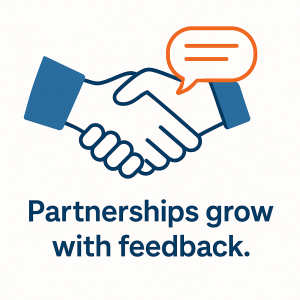
Whether it’s guiding suppliers, coaching your team, or improving your own process, structured, timely feedback drives transformation.
With Scale, you don’t just manage tenders—you create a transparent, accountable, and performance-driven procurement ecosystem.
👉 Ready to turn feedback into impact? – Book a Demo





